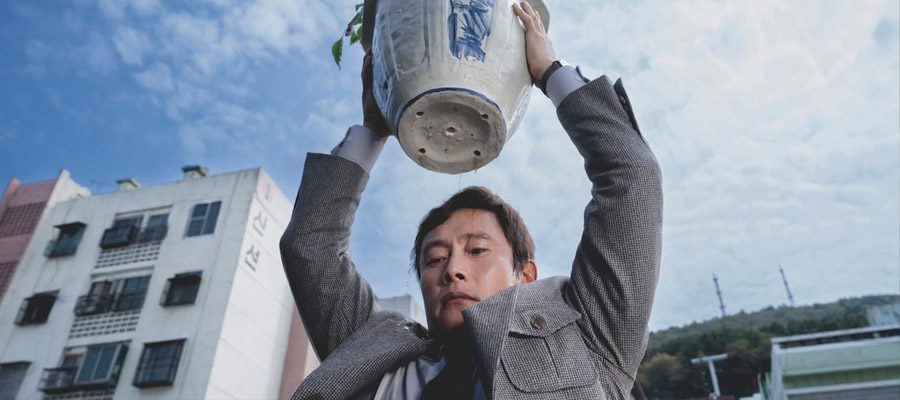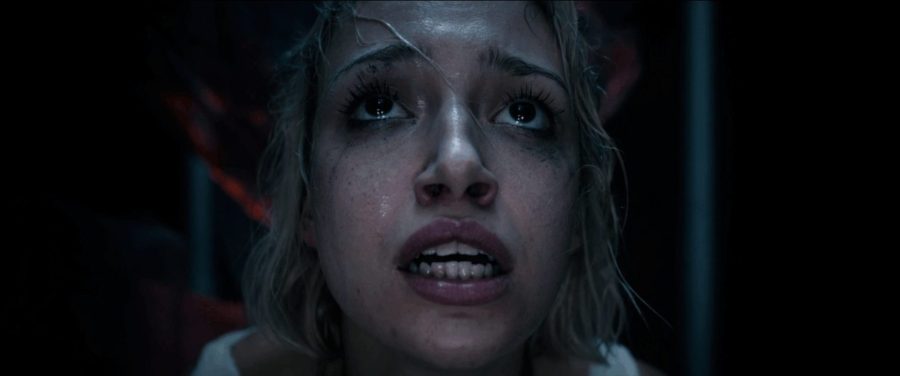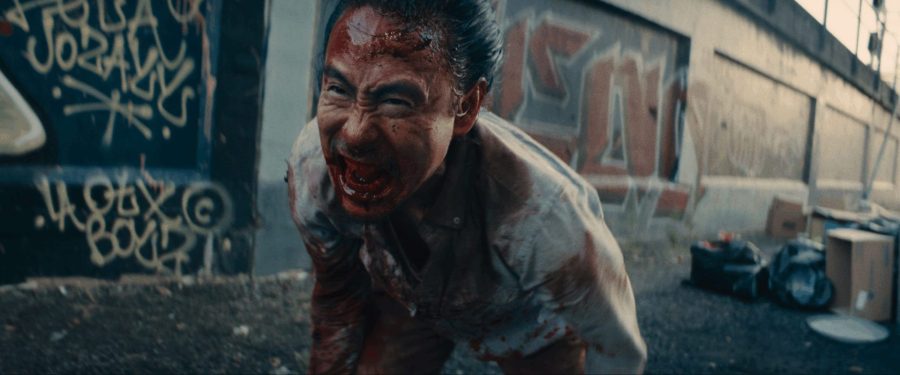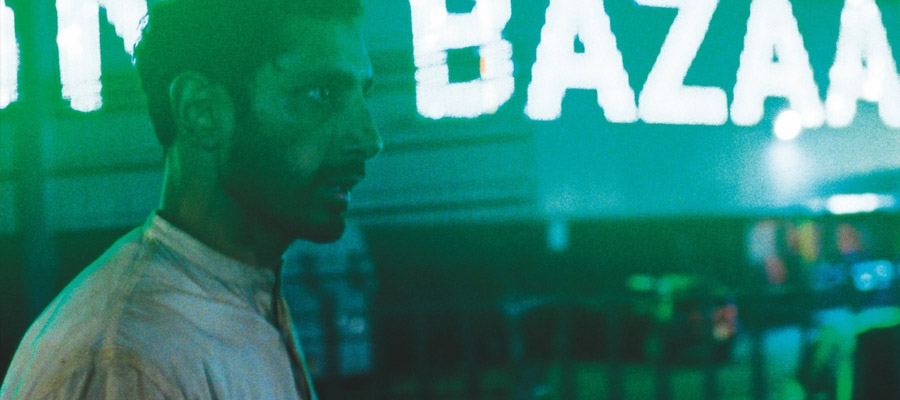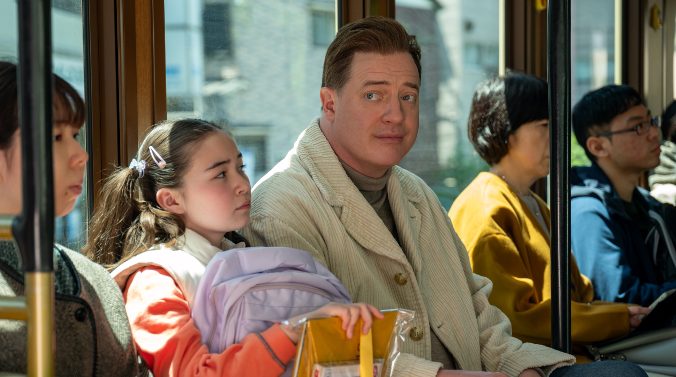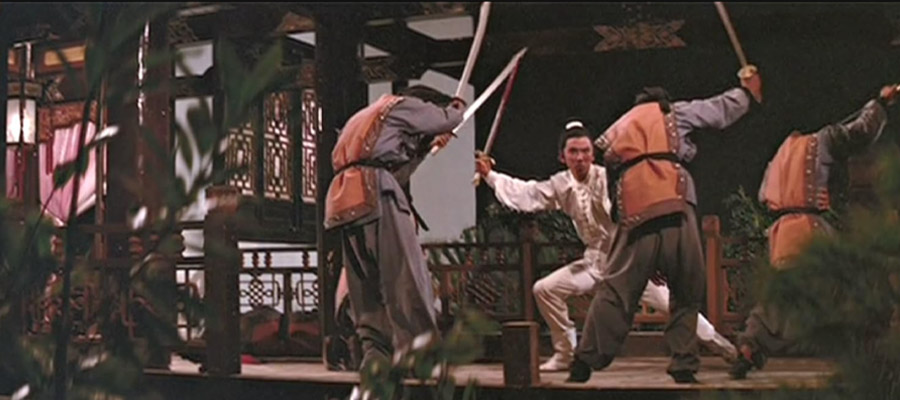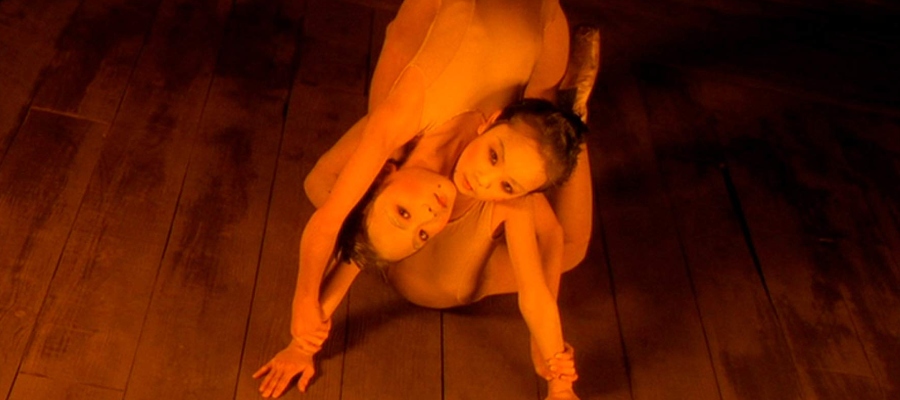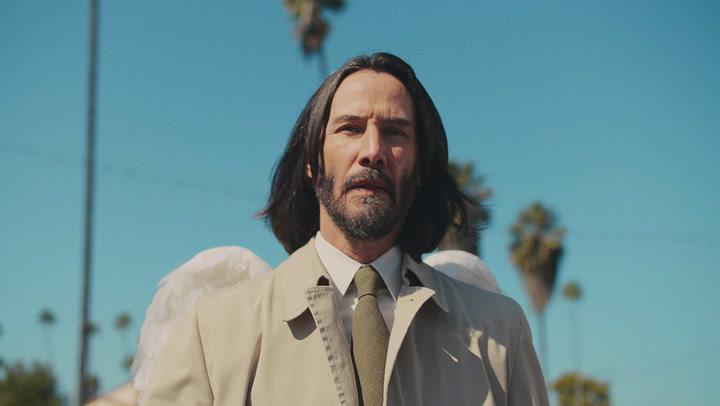No Other Choice starts with a family barbecue. Two parents, two children, two dogs, under falling blossoms. Few viewers will expect that perfect scene to tell the whole story, but even if they're braced for the sublime to turn ridiculous as the seasons change, even fewer will anticipate where this dark comedy thriller heads. A sprawling triumph of filmmaking, it's likely to hit you in successive tiny hits: satire by a hundred paper cuts.
You Man-soo (Lee Byung-hun) has always worked in the paper industry, building an idyllic life for his family. When he misconstrues the gift of an eel (delicious and worth some playful innuendo, but actually a redundancy gift from his company's American owners who have ”no other choice”), his carefully constructed life risks collapsing like a house of cards.
But then, as a doyen of middle management in the paper industry, it shouldn't take long to land a new job, should it? When employment fails to materialise, the turbulent water under Man-soo's seemingly perfect family bubbles up—resentment around his drinking, his wife's new job with an attractive dentist that causes Man-soo endless toothache, an adopted son accused of theft and a cello prodigy daughter who no one in the family ever hears play. It's then that Man-soo hatches a desperate plan. By advertising jobs for a fictional paper company, he can identify his main rivals and kill them off, creating vacancies and reducing the competition in one move. Sure, he may not be very good at it, but he has “no other choice.”
Despite being the second adaptation of Donald Westlake's 1997 horror novel The Ax, in the hands of Park Chan-wook, who co-writes, produces, and directs, No Other Choice is not only bang-up-to-date but monumental.
The director of the Vengeance trilogy needs little introduction, and No Other Choice clearly draws on the thrills, unsettling imagery and black comedy of his previous work. From the simple idea of a violent job hunt, however, he knits multiple genres, twists, and incomprehensible dream sequences into a film of searing relevance. Although there's every chance you'll feel you've been on a vital trip by the end, what it has to say about modern society will be up to you.
To work, No Other Choice has to fuse the mundane and extraordinary, and it achieves that brilliantly. Byung-hun is essential, skillfully embodying Man-soo at every stage of his incredible journey; as an obsessive botanist, pratfalling assassin and extraordinary master of his own destiny. Developing from a family man incapable of realising what losing his job means—not just the inflated view he has of himself as breadwinner, but in the context of a tragic past involving his father—Man-soo's suppressed history and botanist skills combine in one of the film's most graphically jaw-dropping visuals. But it's in the gradual ebb and flow of information that No Other Choice draws its real power.
Chan-wook constantly feeds in new information to reshape the story of Man-soo and his family. During one scene, after Man-soo's jealous flight from a dance, his wife Lee Mi-ri (Son Ye-jin in an enthrallingly peppy performance) reveals his past alcoholism. It's a riveting moment that reframes the relationship while husband and wife are dressed as Pocahontas and Captain John Smith. As with many scenes, it's a knot of tones, feelings, and intentions that can be read on multiple levels.
Then there's a point where those nudges, nips and tucks tip over and the film changes; where characters shift, and the story takes on a new relevance. It's difficult to pinpoint where exactly, but the film turns on this ‘whenwasit?' A viewer's response to that is likely to determine where they land on the ending.
Don't expect No Other Choice to serve up its point, although it's clear that Chan-wook is blowing up perceptions of the trimmings and trappings of modern society. While it's not the only hefty satire threatening awards this year, No Other Choice is a finely tuned symphony. Uncompromising, expectation-defying, and lengthy, it can be frustrating, but that's a frustration born out of being treated like a vested audience.
If not quite the masterpiece the great South Korean director aimed for, No Other Choice is existential viewing.
No Other Choice is released in cinemas later in 2025

